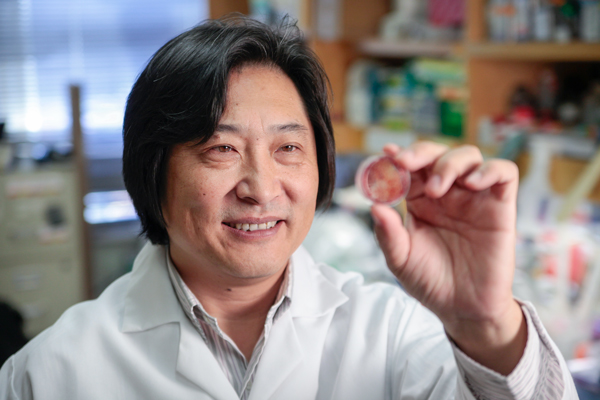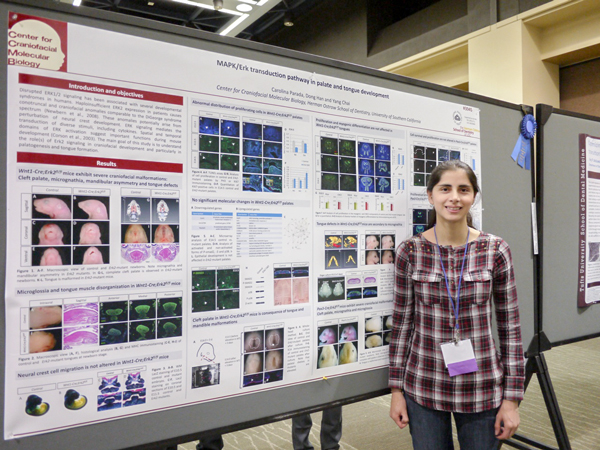Ostrow Investigators Recognized for Research

Posted
07 May 13
The International Association of Dental Research honored two scientists from the Ostrow School of Dentistry at the IADR General Session opening ceremonies on March 20 in Seattle, Wash.
The honorees, Professor Songtao Shi and Postdoctoral Research Associate Carolina Parada, are researchers in Ostrow’s Center for Craniofacial Molecular Biology.
Shi, an internationally celebrated stem cell scholar, received the Distinguished Scientist Award in Pulp Biology and Regeneration. For the Distinguished Scientist Awards, IADR members are nominated by their peers for their research within a specific subject area; the IADR Science Awards Committee then selects the winners.
Throughout his career, Shi’s work has identified many promising dental sources of stem cells, including the pulp of baby teeth. Beyond stem cells’ potential to regrow diseased or damaged tissue, Shi’s research has also highlighted how stem cell regeneration is moderated by the body’s immune system.
Now, he and his collaborators have their sights set on regenerating healthy dental tissue – including periodontal tissue and dental pulp – in humans, potentially changing the way that many oral maladies are treated. Human trials are in the works, Shi says.
“The root canal has been used for hundreds of years; we want to have living pulp come back.” Shi says. “We understand the cells, we understand the clinic, and we understand dental disease. The dream is to translate this cell therapy to patients.”
Carolina Parada won the first place Bernard Sarnat Award in Craniofacial Biology. The award is given annually to a Ph.D. student or postdoctoral fellow based on a poster presentation at the General Session for original research on craniofacial growth and development.

Parada’s research poster discussed the role of extracellular signal-regulated kinase, or ERK, in the development of the palate and tongue. Experimental mice with mutations in the genes responsible for ERK had developed cleft palates, small lower jaws, and small tongues before dying at birth.
“The ERK signaling pathway plays a crucial role in the development of both palate and tongue through a combination of different mechanisms,” Parada says. “Cleft palate appears to be a consequence of tongue and mandible defects.”
She adds that the result of the ERK mutation in mice is similar to DiGeorge syndrome in humans, which is characterized by both craniofacial and cardiac defects.
“This is a good model to study those complex craniofacial malformations,” Parada says. Parada’s faculty advisor is Yang Chai, director of the CCMB and Ostrow associate dean of research.
Chai says the awards are great distinctions for both Shi and Parada and illustrate how successful the CCMB team is at all levels.
“It’s not only our senior investigators conducting groundbreaking research; our junior investigators consistently accomplish a lot as well,” he says. “The CCMB has very talented researchers at many different points in their careers all working together here.”